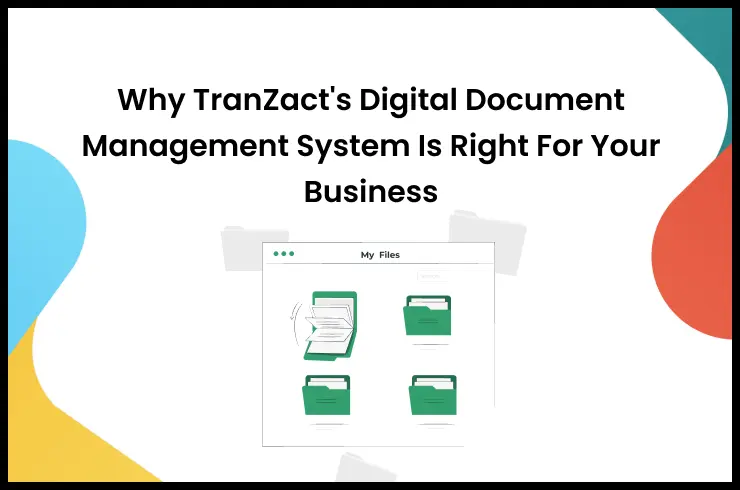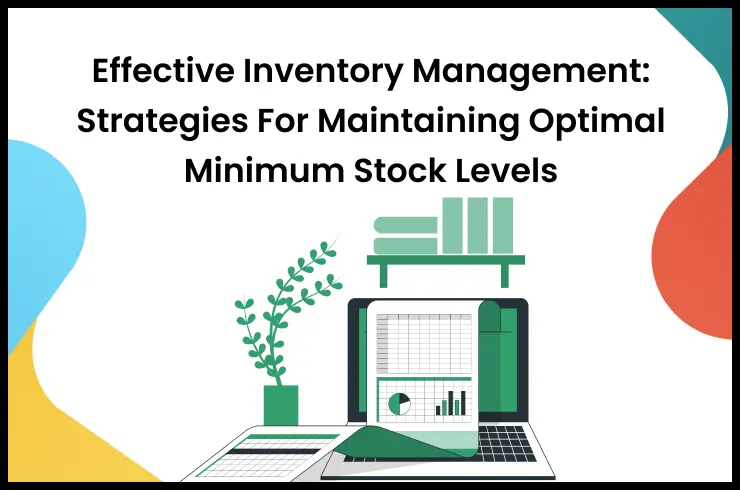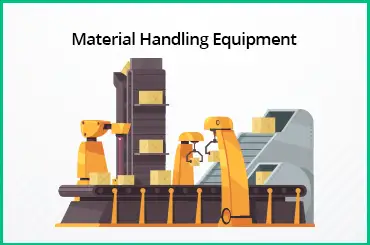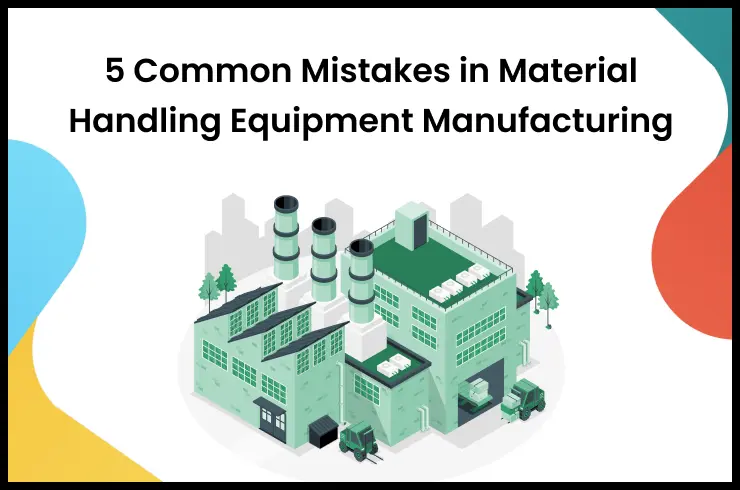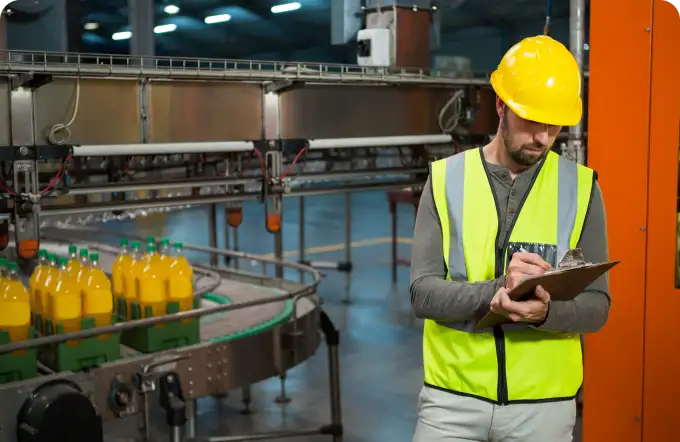Industry 4.0 is happening right now! India's manufacturing sector is growing rapidly, supported by government initiatives like the National Manufacturing Policy and the Production Linked Incentive (PLI) scheme. While the industry has faced challenges, recent policies and infrastructure improvements are making it easier for entrepreneurs to start manufacturing businesses.
In this blog post, we will find the top 25 best manufacturing business ideas to start in India and make your contribution to the growing Indian economy.
Also read Top 10 Digital Tools for Digitising Your Manufacturing Business.
25 Manufacturing Business Ideas in India
The manufacturing sector in India has seen significant development over the past few decades, contributing significantly to the country's economic development. Anyone who wants to be a part of the manufacturing sector can consider the best manufacturing business ideas discussed below. You can also click on the industry of your choice and jump directly to that section.
1. Automobile Parts Manufacturing
2. Eco-friendly Packaging Manufacturing
3. Kitchen Utensils Manufacturing
4. Snacks Manufacturing
5. Electrical Fitting Manufacturing
6. Renewable Energy Products Manufacturing
7. Hair Oil Manufacturing
8. Organic Farming
9. Cosmetics Manufacturing
10. Organic Fertilizer Manufacturing
11. Personal Care Products Manufacturing
12. Plastic Product Manufacturing
13. Disposable Cup and Plate Manufacturing
14. Medical Supplies Manufacturing
15. Computer Accessories Manufacturing
16. Paper Bag Manufacturing
17. Pet Food Manufacturing
18. Ice-Cream Manufacturing
19. Leather Bags Manufacturing
20. Soap Manufacturing
21. Smartphone Accessories Manufacturing
22. Toys Manufacturing
23. Hand Sanitizer Manufacturing
24. Agarbatti Manufacturing
25. Millet-Based Food Manufacturing
1. Automobile Parts Manufacturing
With the growing automobile industry in India and globally, manufacturing automobile parts is a profitable idea. There’s a constant demand for components like engines, batteries, and accessories for both traditional and electric vehicles. SMEs can focus on supplying parts to car manufacturers, dealerships, and repair shops.
As electric vehicles become more popular, there is an increasing need for specialized parts such as electric batteries and motors. Additionally, exporting to international markets can open new revenue streams. Government support for the "Make in India" initiative adds further encouragement for local manufacturing in this sector.
2. Eco-friendly Packaging Manufacturing
As sustainability becomes a priority for businesses worldwide, the demand for eco-friendly packaging is on the rise. SMEs can manufacture biodegradable or recyclable packaging materials for industries such as food, e-commerce, and retail. With growing environmental awareness, many companies are shifting away from plastic to more sustainable options.
Government regulations that limit single-use plastic also create a favourable environment for eco-friendly packaging businesses. SMEs that focus on innovative, cost-effective packaging solutions can tap into both domestic and export markets. This sector offers great potential for growth as consumers and businesses move toward greener alternatives.
Read How to Start a Small-Scale Manufacturing Business in India
3. Kitchen Utensils Manufacturing
The kitchen utensils industry is a staple in Indian households, with high demand for stainless steel, aluminium, and non-stick cookware. SMEs can manufacture utensils for domestic and export markets, catering to the ever-growing need for quality kitchenware. The rise of e-commerce has opened additional channels for selling products directly to consumers.
Manufacturing durable, innovative, and affordable kitchen tools can help businesses build a loyal customer base. Additionally, creating eco-friendly and sustainable kitchen products can appeal to a growing segment of environmentally conscious consumers. With moderate investment, this sector promises steady demand and profitable returns.
4. Snacks Manufacturing
India’s love for snacks creates a great market for SMEs. Whether focusing on regional specialities, healthy snacks, or fusion products, there is a constant demand for innovative snack options. With changing consumer preferences toward healthier alternatives, SMEs can try producing snacks made from millet, quinoa, or baked products.
The Indian snack industry is also export-oriented, providing opportunities to sell regional delicacies abroad. Also, with a relatively low investment requirement, this business can be easily scaled as demand grows. Partnering with local retailers, supermarkets, and online platforms can help expand distribution and build brand visibility.
5. Electrical Fitting Manufacturing
As India continues to urbanize and develop infrastructure, the need for electrical fittings such as switches, sockets, and wiring is growing fast. SMEs can produce high-quality electrical components to fulfil the demands of residential, commercial, and industrial sectors.
Partnering with real estate developers, contractors, and electricians offers consistent demand for these products. With a focus on energy-efficient and innovative designs, SMEs can stand out in the market. Also, exporting electrical fittings to other countries can open up new revenue opportunities. The government’s push for "smart cities" and infrastructure development will continue to drive growth in this sector.
6. Renewable Energy Equipment Manufacturing
There’s a growing demand for equipment like solar panels, wind turbines, and energy storage systems. SMEs can capitalize on this trend by manufacturing renewable energy products for both domestic and international markets. India’s push for sustainable energy solutions, along with government incentives for clean energy, makes this sector highly attractive for investment.
By producing affordable and durable renewable energy equipment, SMEs can support the growing need for green energy infrastructure in homes, businesses, and large-scale projects. This sector also offers opportunities for technological innovation and long-term growth.
Read Key Benefits of Digitizing Your Manufacturing Business in India.
7. Hair Oil Manufacturing
Hair oil is a product that has a long-standing tradition in India, with strong demand across both rural and urban markets. SMEs can produce a wide range of hair oils, from traditional herbal blends to more modern, premium offerings. The trend towards organic and natural products has further boosted the demand for chemical-free hair oils.
SMEs can focus on creating products that cater to specific hair types and needs, offering a unique value proposition in a competitive market. With a relatively low production cost and strong consumer demand, the hair oil business presents consistent growth opportunities for manufacturers.
8. Organic Farming
Organic farming is gaining popularity as more consumers prioritize healthy, chemical-free food. SMEs can work on growing and supplying organic fruits, vegetables, grains, and herbs to meet this demand. Organic produce is wanted by supermarkets, local markets, and restaurants, providing a steady market for suppliers.
Exporting organic products to international markets can open new revenue streams. The government’s push for sustainable farming practices, along with rising health consciousness, provides further support for this industry. Investing in organic farming can lead to long-term growth as more people try healthier eating habits.
9. Cosmetics Manufacturing
There is increasing consumer awareness of beauty and skincare products. SMEs can enter this market by manufacturing cosmetics that provide products for these segments, such as organic, cruelty-free, or herbal products. With a focus on quality, affordability, and safety, manufacturers can tap into a growing demand for natural beauty solutions.
The shift towards e-commerce also offers SMEs a platform to reach a wider audience. Exporting Indian cosmetics to international markets provides additional growth opportunities. By staying on top of beauty trends and consumer preferences, SMEs can build a successful cosmetics brand.
Here is Your Go-to Document Checklist for Indian Manufacturers - From Enquiry to Dispatch.
10. Organic Fertilizer Manufacturing
There is an increased demand for organic fertilizers. SMEs can manufacture eco-friendly fertilizers from natural ingredients, fulfilling the demands of farmers who want to improve crop yields without harming the environment. The government’s push for organic farming and sustainable practices further supports this industry.
Organic fertilizers are not only better for the soil but also reduce the dependence on chemical-based alternatives. SMEs can supply fertilizers to organic farms, local markets, and agricultural cooperatives. With increasing awareness of the benefits of organic farming, this business offers steady demand and growth potential.
11. Personal Care Products Manufacturing
There is a rising demand for products like shampoos, lotions, and soaps. SMEs can produce affordable, high-quality personal care items for a wide audience. There is also growing interest in natural and organic personal care products, creating opportunities for manufacturers to offer eco-friendly alternatives.
With the help of online platforms and retail partnerships, SMEs can reach a larger customer base. Personal care products are consumables, making sure of repeat purchases and steady demand. By focusing on innovation and customer preferences, SMEs can build a successful business in this sector.
Here are Things to Know About Smart Manufacturing.
12. Plastic Product Manufacturing
Despite environmental concerns, plastic products are still widely used in various industries, including packaging, construction, and household goods. SMEs can focus on producing recyclable and innovative plastic products that fulfil these demands. With the rise of e-commerce and packaging needs, plastic manufacturing remains a good business.
By using sustainable practices, such as using biodegradable plastics, SMEs can appeal to eco-conscious consumers. Government regulations on single-use plastics have created a shift toward recyclable alternatives, offering opportunities for growth. This business offers scalability and strong demand across multiple sectors.
13. Disposable Cup and Plate Manufacturing
The demand for disposable cups and plates has increased significantly because of the rise in food delivery services, events, and outdoor dining. SMEs can produce eco-friendly, biodegradable disposable products to cater to this growing market. Many businesses and consumers are looking for sustainable alternatives to plastic, making this an attractive sector for manufacturers.
The low production cost and high demand make disposable cup and plate manufacturing a profitable venture. SMEs can partner with restaurants, catering services, and retail stores to distribute their products. With the right marketing, this business can be scaled quickly and efficiently.
14. Medical Supplies Manufacturing
The healthcare industry is constantly in need of medical supplies such as gloves, syringes, masks, and other essential items. SMEs can focus on producing high-quality, affordable medical supplies for hospitals, clinics, and pharmacies. With increasing healthcare awareness and demand, especially after the pandemic, this sector offers long-term growth potential.
Medical supplies are consumables, making sure of repeat business and continous demand. SMEs can also try exporting medical supplies to other countries. By maintaining strict quality standards and adhering to industry regulations, manufacturers can build a reputable brand in the healthcare sector.
15. Computer Accessories Manufacturing
The demand for computer accessories, such as keyboards, mice, and cables, has increased with the rise of remote work, online education, and digital transformation. SMEs can work on producing high-quality, durable computer accessories. With a focus on innovation and design, manufacturers can try both domestic and international markets.
The shift toward e-commerce provides additional opportunities for distribution and sales. As more people rely on technology, the demand for computer accessories will continue to grow. This sector offers strong growth potential and scalability for SMEs.
Understand What Is a Supply Chain?
16. Paper Bag Manufacturing
With increasing bans on plastic bags, the demand for paper bags has grown a lot. SMEs can produce eco-friendly paper bags for retail, food, and grocery sectors. These bags are in demand as businesses switch to sustainable packaging alternatives. Paper bags are biodegradable, recyclable, and cost-effective, making them an ideal solution for industries looking to reduce their environmental impact.
SMEs can also export paper bags to countries with strict environmental regulations. With growing consumer preference for eco-friendly products, this business offers strong growth potential and scalability, especially for small and medium-sized enterprises.
17. Pet Food Manufacturing
The pet care industry in India is growing rapidly as more people adopt pets. SMEs work on producing nutritious, affordable pet food for dogs, cats, and other animals. There’s also an increasing demand for premium and organic pet food, offering opportunities for a variety of products.
By focusing on quality and health benefits, SMEs can build a loyal customer base. The pet food market is quite new, providing potential for strong growth, both in local markets and through export opportunities. With a growing number of pet owners, this business is set to grow.
18. Ice-Cream Manufacturing
Ice cream is a year-round favourite in India, offering SMEs a good opportunity in the food industry. By producing a variety of flavours, including traditional, organic, and low-sugar options, SMEs can produce for a wide audience. The demand for ice cream is high in both urban and rural areas. With the right distribution strategies, businesses can capture a large market share.
And, the rise of online food delivery platforms has expanded the reach of ice cream manufacturers. With low production costs and high-profit margins, ice cream manufacturing presents an excellent business opportunity for SMEs.
19. Leather Bags Manufacturing
India is known for its high-quality leather products, and leather bags are in demand both locally and internationally. SMEs can work on producing stylish, durable leather bags for fashion-conscious consumers. The leather goods industry offers great export potential, especially in markets that appreciate handcrafted, premium products.
By focusing on design, quality, and craftsmanship, SMEs can create unique products in the luxury and utility bag markets. They can also produce eco-friendly leather bags using sustainable practices can appeal to environmentally conscious buyers, further expanding market opportunities for SMEs.
20. Soap Manufacturing
Soap is an important product in every household. SMEs can produce a variety of soaps, from basic affordable options to premium, organic, and herbal varieties. The focus on hygiene, especially after the pandemic, has increased the demand for soaps and other personal care products.
SMEs can try different market segments by offering specialized products for sensitive skin, organic ingredients, or unique fragrances. Soap manufacturing is a low-investment business with high returns, making it a reliable choice for SMEs looking for steady growth.
21. Handmade Crafts
With a growing increase in smartphone use in India, the demand for accessories like phone cases, chargers, earphones, and screen protectors is growing. SMEs can produce trendy, durable, and affordable smartphone accessories. The rise of e-commerce platforms helps manufacturers to sell directly to consumers, increasing reach and profitability.
As smartphones continue to evolve, there is also potential for creating innovative accessories that cater to new features and trends. This business offers scalability, as the demand for smartphone accessories is expected to grow in both domestic and export markets.
22. Toys Manufacturing
The toy industry in India is seeing steady growth, with a rising demand for educational and creative toys. SMEs can manufacture toys that are for children’s developmental needs, focusing on safety, affordability, and creativity. With the growing trend toward eco-friendly and non-toxic materials, SMEs can differentiate themselves by producing sustainable toys.
The potential for exporting Indian-made toys to international markets also adds to the business’s attractiveness. Additionally, the demand for toys in the e-commerce sector provides an additional sales channel. By focusing on quality and innovation, SMEs can grow in this expanding market.
23. Hand Sanitizer Manufacturing
The global pandemic has created sustained demand for hand sanitizers. This demand is expected to continue as hygiene awareness remains high. SMEs can produce hand sanitizers in various forms, such as liquid, gel, or spray. The rise of eco-friendly and organic hand sanitizers presents an opportunity for SMEs to create unique products.
By focusing on quality and safety standards, SMEs can build a reputable brand in this important sector. With low production costs and high demand, hand sanitizer manufacturing is a profitable business with long-term growth potential.
24. Agarbatti Manufacturing
Agarbatti, or incense stick manufacturing, is a traditional business in India with a consistent demand for religious, wellness, and aromatic purposes. SMEs can produce incense sticks with a focus on natural ingredients and unique fragrances. This business requires a low initial investment but offers high demand, especially in domestic markets.
Additionally, there is growing export potential for incense sticks to countries with a strong demand for spiritual and wellness products. By creating unique products, SMEs can build a loyal customer base and establish a successful business in the agarbatti industry.
Read more - What is ERP Software: Functions, Solutions, and Use Cases
25. Millet-Based Food Manufacturing
Millets are becoming increasingly popular as a health-conscious food option due to their high nutritional value and sustainability. SMEs can manufacture a range of millet-based products, such as snacks, flour, and breakfast cereals. The Indian government’s support for millet cultivation, as part of its sustainable agriculture initiatives, helps this industry. SMEs can supply both domestic and export markets with millet-based foods, tapping into the health and wellness trend. With a focus on innovation and quality, millet-based food manufacturing offers strong growth potential for SMEs.
The Scope of Manufacturing is Immense
There are many opportunities for entrepreneurs and investors to start and grow businesses in various sectors. Even though there are challenges, such as government regulations, infrastructure issues, and supply chain challenges, at the same time, there are many new policies that support the small-scale manufacturing business idea to flourish.
Learn How TranZact Can Digitise Your Manufacturing Business: A Comprehensive Guide.
With the adoption of Industry 4.0 technologies such as automation, artificial intelligence, and the Internet of Things (IoT), Indian manufacturing companies are becoming more efficient, productive, and competitive on the global stage.
TranZact can help in streamlining the manufacturing process from enquiry to dispatch to improve your profitability! With careful planning and execution, the manufacturing industry in India can offer a profitable and rewarding business opportunity.
FAQs on Manufacturing Business Ideas
1. What are some of the small business ideas?
Some of the most popular manufacturing industries in India are automobiles, textiles, food processing, pharmaceuticals, toys, and electrical supplies.
2. How can I start a manufacturing business in India?
To start a manufacturing business in India, one needs to register the business with the government, obtain necessary permits and licenses, secure funding, identify suppliers and manufacturers for raw materials, buy and install the required equipment and adopt the right ERP software to streamline businesses.
3. What are the challenges of running a manufacturing business in India?
Some of the challenges of running a manufacturing business in India include government regulations, infrastructure issues, labor laws, supply chain challenges, and competition from other manufacturers.
4. How can I ensure quality control in my manufacturing business?
Every manufacturing business in India needs to comply with certain policies and standards prescribed by the government. From acquiring the license to registration and maintaining the quality standards and accreditations is a must.
5. What are the tax implications of running a manufacturing business in India?
The tax implications of running a manufacturing business in India include income tax, goods, and services tax (GST), and customs duty.
6. How can I market my manufactured products in India?
The process of marketing any product in the market is simplified with social media channels, trade shows, and participation and exhibitions.
7. How can I expand my manufacturing business in India?
Starting the manufacturing business has become easier because of the introduction of several policies by the government of India. In addition, expanding in marketing the business idea has been simplified with the surge of social media. Adopting the right research methodology and marketing strategy can help in acquiring the customer and making the brand presence stronger.
8. What factors have contributed to the growth of manufacturing companies in India?
Factors like the 'Make in India Initiative', 'Industrial Corridor Development Program', budget allocation for the MSME sector, and the growing domestic market have contributed to the growth of the manufacturing segment.
9. What are the different types of manufacturing businesses in India?
The basic classification of the manufacturing industry is as follows: a. Agro-based manufacturing b. Mineral-based manufacturing c. Consumer industries.








